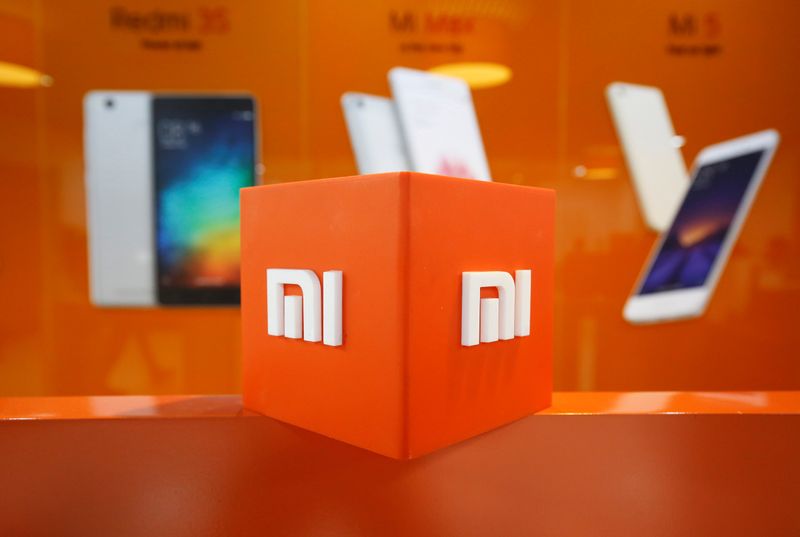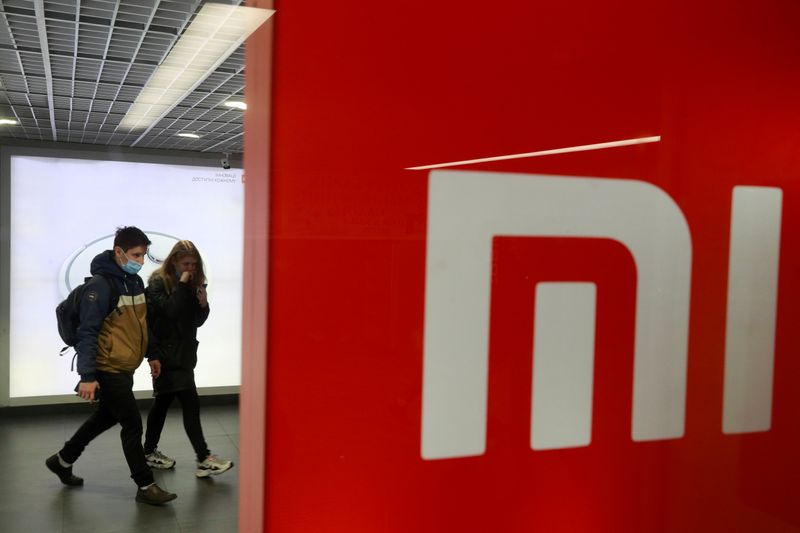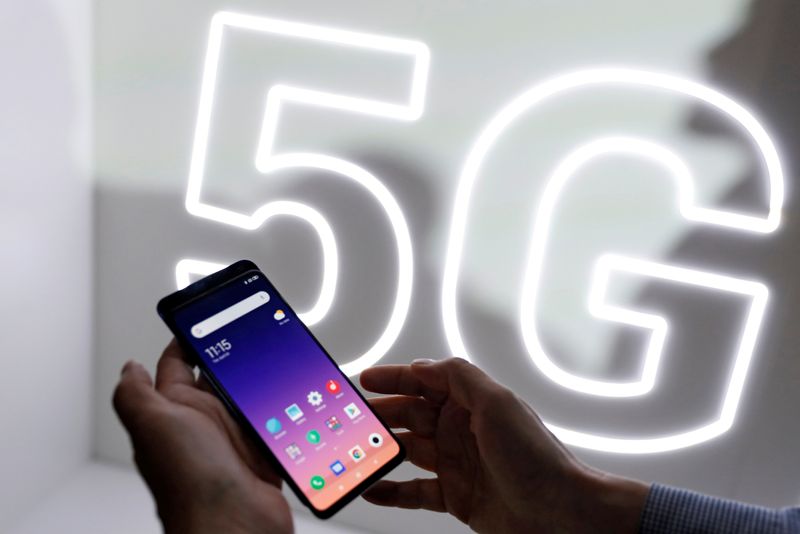SHANGHAI (Reuters) – Chinese smartphone maker Xiaomi flagged on Wednesday rising costs from a global chip shortage and reported quarterly revenue below market estimates, even as its international business head jumped ship to TikTok owner ByteDance.
Shares in Xiaomi Corp fell as much as 9% in early morning trading on Thursday, before paring losses to trade down 5%.
Xiaomi is the latest in a line of global companies to warn of an extreme chip shortage, which initially hit production at car companies including Volkswagen , but is now pressuring makers of smartphones and consumer electronics.
As well, Xiaomi’s strategy to diversify revenue by investing in financial technology firms has run afoul of China’s running crackdown on such companies.
Revenue in Xiaomi’s internet services unit, which houses the fintech business, rose just 8% in the fourth quarter.
“Tightening regulations on the fintech business would weigh on 2021 (estimated) earnings growth,” Daiwa Capital Markets analyst John Choi said in a note.
Still, Xiaomi’s sales jumped by 25% in the quarter ended December to 70.46 billion yuan ($10.79 billion), and adjusted profit rose 37% to 3.20 billion yuan. Analysts had expected revenue of 75.23 billion yuan and a profit of 2.94 billion yuan, according to Refinitiv data.
Smartphone sales, which account for the bulk of Xiaomi’s revenue, rose 38% to 42.6 billion yuan.
The company’s shipments in China surged by 52% from a year earlier as it grabbed market share from rival Huawei Technologies Co Ltd, which has steadily retreated from the global market due to U.S.-led sanctions, helping Xiaomi corner 15% of the domestic market share.
CHIP WOES
A ban by Washington on key components placed on Huawei has caused its smartphone shipments to plummet both in China and overseas.
Anticipating the opportunity, Xiaomi and other Android-based smartphone makers ramped up production of their devices towards the end of last year.
This, however, contributed to the chip shortage, which was partly caused by a pandemic-led demand for consumer electronics outstripping supply from chipmakers such as Qualcomm.
“To be honest, we will do our best to offer the best price we can to consumers. But sometimes, we may have to pass part of the cost increase to the consumer in different cases,” Xiaomi’s President Wang Xiang said on an earnings call.
“We are feeling pressure, but we are looking okay,” he said.
Xiaomi also announced that Shou Zi Chew, president of its international department, had resigned. ByteDance said it had hired Chew for the newly created role of chief finance officer, suggesting it was moving towards a much-anticipated initial public offering of one or some of its businesses.
($1=6.5320 Chinese yuan renminbi)
(Reporting by Josh Horwitz; Writing by Sayantani Ghosh; Editing by Kim Coghill and Jason Neely)



























